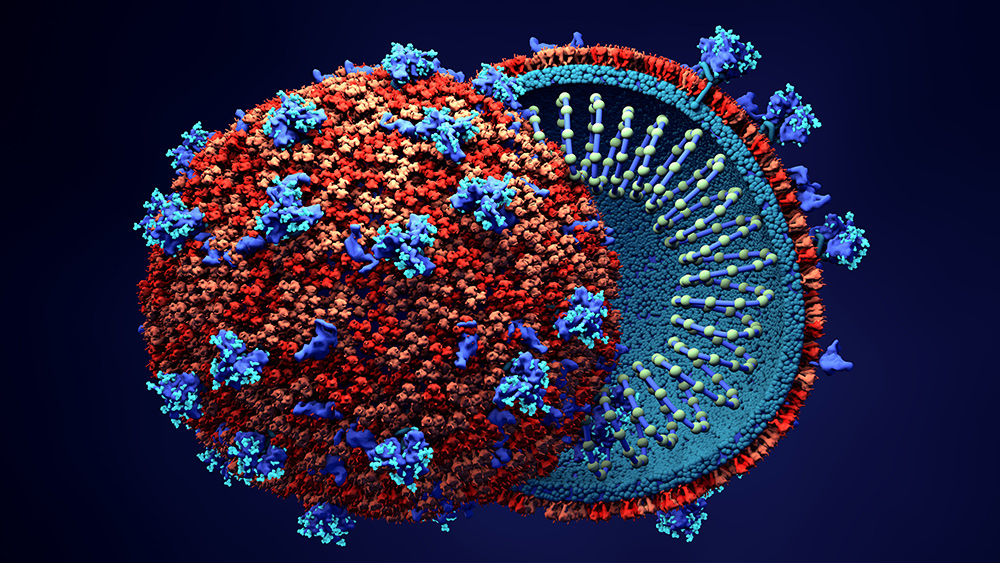It’s not about the diet: Healthy foods, rather than diet, are important for reducing heart disease risk
06/22/2020 / By Zoey Sky

Having good lifestyle habits like eating nutritious foods and exercising regularly is essential to your overall well-being. While various studies have found that maintaining a healthy weight is the best way to promote cardiovascular health, experts often have different opinions on how to achieve this goal.
Now, according to a recent study conducted by American scientists, research indicates that eating healthy foods may be more important than following a certain type of diet if you want to boost your heart health.
The study was published online in the International Journal of Cardiology.
It’s what you eat, not what diet you follow
Some health experts believe following a low-carb diet is a must if you want a healthier heart, but others suggest reducing fat intake to promote weight loss. However, not much is known about the effects of these specific macronutrients on heart health.
In a recent study, a team of researchers looked into how three healthy diets that emphasize the intake of three different macronutrients, namely carbohydrates, proteins or unsaturated fats, affect biomarkers of cardiovascular injury and inflammation.
- Carbohydrates – Carbs — which include sugars and starches — are broken down by the body into glucose that cells use for energy. Almost all kinds of food, except meat, poultry and some seafood, contain carbs. Healthy food sources of carbs, such as beans, fruits, vegetables and non-fat dairy, are rich in vitamins and minerals.
- Protein – Protein helps you build lean muscle mass and also gives structure to your cells. This nutrient also functions as an energy source when carbs and fat are not available.
- Fat – Fat, a structural component of your cells and blood vessels, is also needed to absorb vitamins A, D, E and K. Fat also provides energy when you run out of glucose. Dietary sources of healthy fat include lean meats like skinless chicken breast, fish and lean cuts of beef.
After analyzing stored blood samples from unmedicated hypertensive adults, the researchers found that all three diets were linked to significant reductions in heart damage and inflammation, which is in line with improved heart health.
According to Stephen Juraschek, the study’s corresponding author and an assistant professor at Harvard Medical School, their findings suggest that eating nutritious foods may be more important than reducing your intake of a single macronutrient.
The study also shows that flexibility in food selection is crucial when encouraging people to follow healthier diets. Juraschek noted that unlike the three healthy diets included in the study, the typical American diet includes fewer than two servings of fruits and vegetables a day. A healthy diet should include at least four to six servings of fruits and vegetables daily.
Healthy diets and inflammation
For the study, the participants tried three healthy diets for six weeks, with a washout period separating each feeding period. The healthy diets included:
- A carbohydrate-rich diet similar to the DASH diet, where grains, sugars and starches accounted for over 50 percent of the calories.
- A protein-rich diet, where 10 percent of the calories that came from carbs were replaced by protein.
- An unsaturated fat-rich diet, where 10 percent of the calories from carbs were replaced by the healthy fats found in avocados, fish and nuts.
The three diets were low in cholesterol, sodium and unhealthy saturated fat and provided the volunteers with other nutrients at recommended dietary levels. (Related: Add fiber-rich chia and flax to your diet and boost your heart health.)
The researchers reported that all three diets reduced heart injury and inflammation and produced positive effects within six weeks. But changing the macronutrients of each diet didn’t offer added benefits. This implied that:
- Changing to a healthy, well-balanced diet can effectively and rapidly reduce cardiac injury and improve heart health.
- The type of diet you are following isn’t important when it comes to reducing cardiac injury. What matters is eating a variety of nutritious foods to boost not just your heart health, but also your overall health.
Juraschek noted that despite the conflicting data and opinions on dietary carbs and fat, the results of their study prove one thing: Following a healthy diet full of fiber-rich foods, lean meats, fruits and vegetables helps improve cardiovascular risk factors. Limiting your intake of processed meats, sugary beverages and sweets can also help reduce direct injury to the heart.
Sources include:
Tagged Under: #nutrition, Diets, food cures, food is medicine, functional food, heart disease, heart health, heart injury, high-fiber foods, inflammation, natural cures, natural medicine, nutrients, prevention, proper diet, research



















